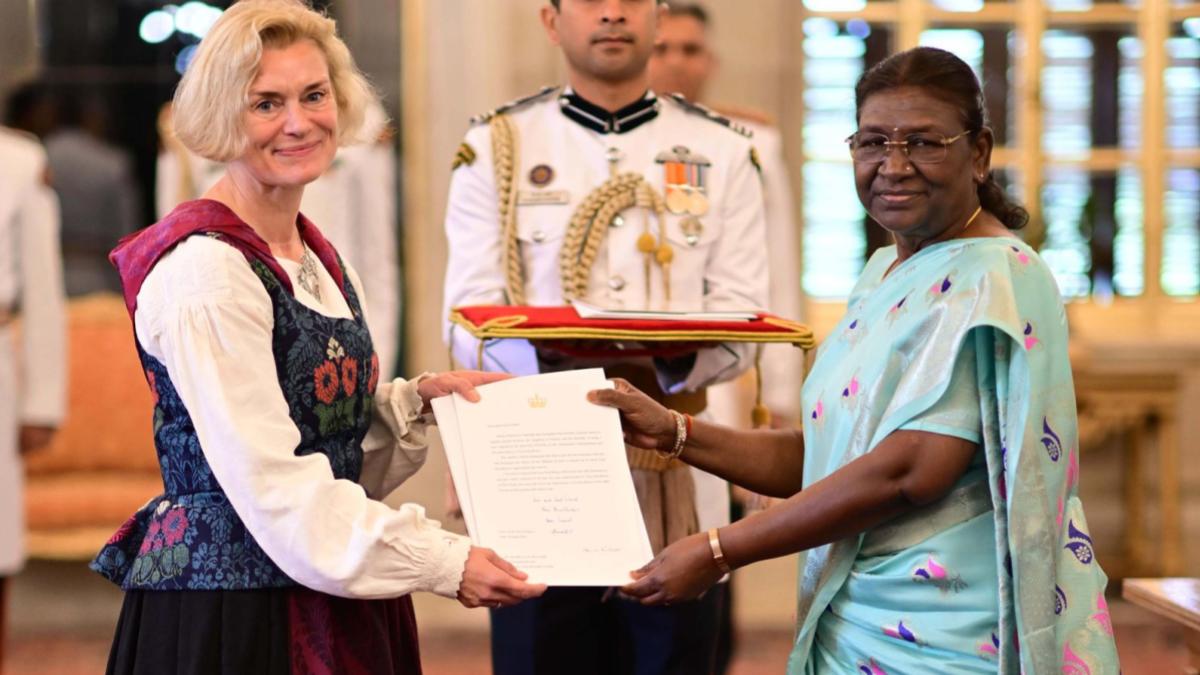India and Norway are on the brink of a new phase in their trade relations, with a historic agreement set to expand cooperation in key sectors such as energy, maritime industries, and green technologies.
This shift was enhanced by the recent visit of India’s Commerce Secretary, Sunil Barthwal, to Oslo, and the signing of the India-EFTA Trade and Economic Partnership Agreement (TEPA) in March 2024. The agreement is expected to become operational in 2025 after ratification by all European Free Trade Association (EFTA) member states. In an exclusive conversation with FinancialExpress.com, Ambassador May-Elin Stener of Norway shared insights on how this agreement will unlock new opportunities for both countries, with a particular focus on sustainability and green growth.
India-EFTA Agreement: A Gateway to New Trade Horizons
The India-EFTA Trade and Economic Partnership Agreement, signed in March 2024, aims to eliminate tariffs on various goods and services, facilitating smoother trade between India and the four EFTA member states: Norway, Switzerland, Iceland, and Liechtenstein. The agreement promises to have a transformative impact on India-Norway relations, offering Norwegian businesses improved access to the Indian market. Ambassador Stener noted that the deal would benefit industries such as seafood, energy, decarbonization, circular economy, and climate solutions.
“Norway sees great potential in the Indian market, particularly in sectors where our expertise aligns with India’s growing needs,” said Stener. One key provision in the agreement is the removal of tariffs on Norwegian seafood exports to India, which will significantly boost trade between the two nations. Beyond seafood, the agreement is expected to foster growth in clean energy technologies, green maritime solutions, and sustainable industries. “The agreement is a major step in advancing our trade relations while contributing to shared global goals for climate action and sustainability,” Ambassador Stener remarked.
Norway’s Focus on Green Technologies
Norway’s commitment to clean energy and sustainability aligns with India’s own environmental and economic goals. As countries with large energy demands and ambitious climate targets, India and Norway have a shared interest in decarbonization and green technology.
Ambassador Stener highlighted the example of electric ferries built by Kochi Shipyard in India and now operational in Norway, illustrating the synergy between the two countries’ maritime industries. “The green economy and clean energy are areas where India and Norway can collaborate effectively. Norway’s vast maritime expertise, combined with India’s growing demand for sustainable solutions, creates a strong foundation for future cooperation,” she said.
The TEPA agreement is particularly significant in the context of India’s renewable energy push. The country has set an ambitious goal to achieve net-zero emissions by 2070, and partnerships like the one with Norway could play a critical role in meeting that target. “Through this agreement, both countries can accelerate the adoption of green technologies, such as energy storage, renewable energy infrastructure, and sustainable transportation,” Ambassador Stener added.
Recent Visit of India’s Commerce Secretary to Oslo
In the wake of the TEPA agreement, Commerce Secretary Sunil Barthwal’s recent visit to Oslo underscored the growing focus on bilateral trade. Barthwal met with key Norwegian officials, including Minister of Trade and Industry Cecilie T. Myrseth and State Secretary Tomas Norvoll, to discuss the next steps in implementing the agreement. The discussions also explored ways to enhance trade and economic ties between India and Norway, particularly in sectors like energy, climate solutions, and maritime industries.
During his visit, Barthwal engaged with representatives from Norwegian businesses and industry groups, including Innovation Norway, the Norwegian Shipowners’ Association, and The Confederation of Norwegian Enterprise. These meetings highlighted the vast potential for collaboration between India and Norway in areas such as sustainable energy, technology, and maritime logistics. The visit further solidified the momentum generated by the TEPA and paved the way for deeper economic ties.
Unlocking Potential in the Green Economy
The India-Norway trade relationship has already seen impressive growth, with bilateral trade increasing by more than 200% from 2013 to 2023. In 2023, India exported goods worth 8.7 billion NOK to Norway, while Norway exported goods worth 4.5 billion NOK to India. The new trade agreement is expected to unlock even greater potential, particularly in industries that align with both nations’ commitment to sustainability.
Norway, with its wealth of natural resources and expertise in energy technologies, is well-positioned to support India’s energy transition. At the same time, India offers a rapidly growing market for green technologies, renewable energy solutions, and sustainable maritime practices. “This agreement will help create new opportunities for both our countries, especially in sectors that support the transition to a low-carbon economy,” Ambassador Stener underlined.
The India-Nordic Summit and Future Prospects
Looking ahead, Norway is set to host the next India-Nordic Summit, expected to take place in 2025. The summit will provide an opportunity to further explore and solidify ties between India and the Nordic countries, particularly in renewable energy, climate solutions, and green technologies. The summit will bring together leaders from the five Nordic countries—Norway, Sweden, Denmark, Finland, and Iceland—and India to discuss opportunities for collaboration in areas like clean energy, sustainability, and innovation.
Ambassador Stener underscored the importance of the India-Nordic Summit in advancing the strategic partnership between India and the Nordic countries. “The summit will serve as a platform to explore how we can deepen our cooperation in sectors critical to our shared future—sustainability, green growth, and innovation,” she said.
A Green Future for India and Norway
Ambassador Stener’s optimism about the future is clear: “This partnership is a tremendous opportunity for both India and Norway to build a more sustainable future while strengthening our economic ties.”

